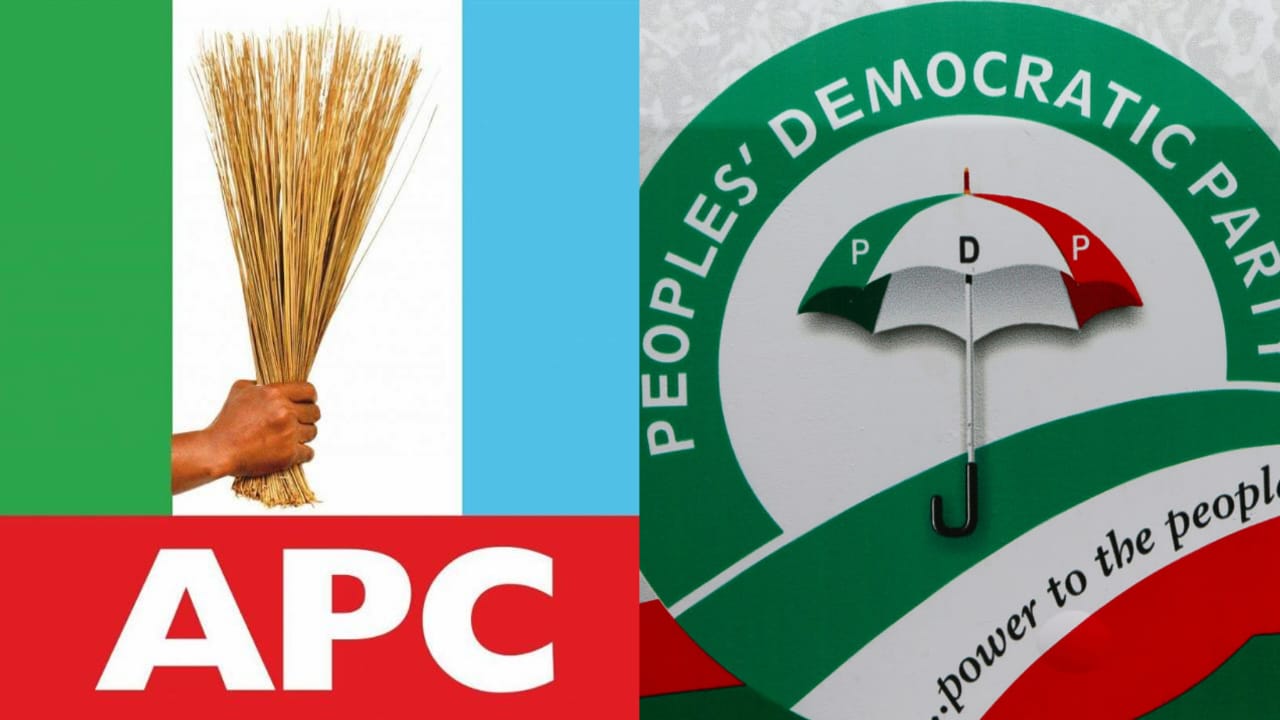Politics
Crisis in PDP, LP: Group Accuses APC of Subversive Tactics

A group has raised concerns about internal crises within the PDP and LP, accusing the APC of employing subversive tactics to exploit the situation.
The Human Rights Writers Association of Nigeria (HURIWA) has voiced significant worries regarding the internal turmoil affecting Nigeria’s two main opposition parties, the People’s Democratic Party (PDP) and the Labour Party.
HURIWA claims that the ruling All Progressives Congress (APC) is purportedly responsible for the unrest as part of a strategic plan to undermine political opposition.
In a statement by its national coordinator, Emmanuel Onwubiko, HURIWA emphasized what it sees as destabilization efforts orchestrated by the APC.
The group proposed that the ruling party is intentionally creating division within the PDP and Labour Party to strengthen its hold on power.
HURIWA attributed the recent political turmoil within the PDP to secret interference by the APC, claiming that appointing Nyesom Wike, former Rivers State Governor and a key figure in the PDP, as Minister of the Federal Capital Territory (FCT) is part of a larger strategy aimed at undermining the party from within.
Moreover, HURIWA criticized President Bola Tinubu’s decision to exclude the FCT Administration from the Treasury Single Account (TSA), a system intended to promote transparency in revenue generation and distribution.
According to HURIWA, excluding the FCT Administration from the TSA is an arbitrary decision that benefits Wike. It strengthens his position as a significant figure within the PDP, allowing him to maintain influence over his party’s internal matters even while serving under the APC government.
HURIWA expressed concern that excluding the FCT Ministry from the TSA sets a risky precedent, potentially undermining fiscal accountability and fueling suspicions that the APC is leveraging prominent PDP members like Wike to undermine opposition efforts.
The group highlighted that this strategy is designed to keep the PDP fragmented and weakened, thereby facilitating the APC’s efforts to strengthen its grip on political power and advance towards establishing a one-party state.
Besides expressing concerns about the PDP, HURIWA also raised alarms regarding the ongoing internal leadership conflict within the Labour Party. The organization highlighted that Julius Abure, the party’s national chairman, allegedly refused to step down after his tenure had expired. They cited this as evidence of apparent interference from the ruling APC.
HURIWA asserts that Abure’s persistent grip on power, despite facing legal and constitutional hurdles, is bolstered by external influences, notably the executive branch of the government. The organization alleged that the APC’s seeming backing of Abure aims to undermine the Labour Party and diminish the political sway of its prominent leader, Peter Obi, who rose as a formidable contender in the 2023 general elections.
HURIWA claimed that the APC is utilizing Julius Abure to undermine the Labour Party’s effectiveness as a credible opposition. By creating internal disruptions, they aim to ensure that the Labour Party does not present any significant challenge in upcoming elections, especially with Peter Obi gaining widespread support.
HURIWA’s accusations extended beyond just political maneuvering. The rights group also criticized what it characterized as the APC’s intentional implementation of restrictive economic policies aimed at impoverishing Nigerians and making them reliant on government assistance.
HURIWA asserts that these policies are elements of a larger strategy aimed at creating an authoritarian regime by exacerbating economic difficulties and restricting the public’s capacity to resist or oppose the government.
HURIWA expressed that the current administration’s economic policies are severely impacting Nigerians, deliberately keeping millions in poverty and reliant on government aid. They compared this approach to a communist system similar to China’s, where citizens depend entirely on the state.
